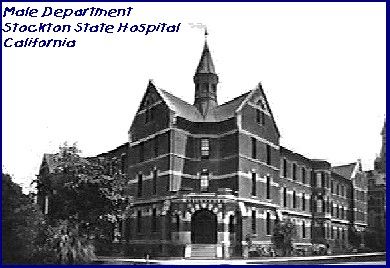Trouble at Developmental Services
AUGUST 25, 2010
By ANTHONY PIGNATARO
This should sound familiar to many people. “(T)here is not really any communication between staff and upper management,” one employee said. “A lot of us are angry and hurt about the way the management seems to be unscathed by the budget, and yet they tell us to ‘hang in there,’ and they are ‘sorry’ we can’t have a raise.”
Those are strong, disheartening sentiments for any organization, but in this case the employee is a retired staffer from one of the 21 regional centers operated by the state Department of Developmental Services (DDS). The centers provide care and services for an estimated 240,000 developmentally disabled people across the state – nearly 60 percent of which aren’t yet 21. And according to a new report from the California State Auditor (which included the above quote), relations between management and staff at the clinics are about as dysfunctional as you can get.
“Almost half of the roughly 400 regional center employees who responded to our survey do not feel safe to report suspected improprieties,” the Aug. 24 Auditor’s report noted. “Also, many indicated that the regional centers do not create an atmosphere of mutual trust or establish open communication.”
This is apparently not a new problem. In fact, for Robert Hazard – a past president of the Parents’ Coordinating Council at the DDS’ Lanterman Developmental Center in Pomona – such criticism brings back a fairly distant memory.
“That was what happened to my daughter-in-law about 12 years ago,” Hazard, who also has a 51-year-old developmentally disabled sister, said. “She worked at a group home for developmentally disabled young people in the Bay Area. She was there about a year, but she realized that she needed more intense training. ‘I’m just a babysitter,’ she told me. ‘I can’t accommodate their needs.’ But no one listened to her, and she quit in frustration. And she was hesitant to report it because of retaliation.”
The California Disabilities Services Association, a lobbying group for a hundred developmentally disabled service providers statewide, also had a harsh reaction to the Auditor’s report. “Even more disturbing, the report found a large number of Regional Center employees are afraid to speak up when they see improper activities or abuses,” CDSA executive director Christopher Rice said in an Aug. 24 statement. “That fear fosters a dangerous culture in a system that is responsible for administering critically needed services for Californians with disabilities. CDSA strongly urges the State Legislature to strengthen whistleblower protections and take immediate steps to reduce bureaucratic waste by implementing more transparency and stricter oversight within the Department.”
The DDS, which has a $4 billion budget, dates back to the Lanterman Developmental Disabilities Act of 1969 (named for Frank D. Lanterman, the Republican senator from Pasadena who pushed hard for the legislation). That act set up 21 “regional centers” – non-profit, private entities spread across the state that provided care for those suffering mental retardation, cerebral palsy, epilepsy, autism and other similar conditions. On paper, at least, such decentralization – allowing patients to live in their own neighborhoods, rather than giant hospitals – was and remains somewhat revolutionary, especially for a public agency. “Together these services are meant to meet the unique needs and choices of each consumer so that he or she may live as independently as possible and participate in the mainstream life of the community in which he or she resides,” the state Auditor reported.
But the auditor also found that a number of the centers were not adhering to proper contracting and vendor procedures. Where expenditures were concerned, the auditor found “they did not always maintain documentation of their processes.” Rates for services seemed to vary widely, in some instances giving the appearance of “favoritism or fiscal irresponsibility.” Many centers award contracts without competitive processes. Written policies concerning contracts and rate agreements were also rare: “One regional center paid a vendor almost $1 million through a rate agreement without adequately specifying the deliverables to be received,” the auditor noted.
For the most part, the DDS generally agreed with the auditor’s recommendations. But in its official response to the report the department insisted that the Lanterman Act restricted its ability to control the actions of the regional centers.
“While DDS provides oversight through a variety of monitoring and auditing functions, its ability to direct the service delivery activities of the 21 contracted not-for-profit regional centers is limited by statute and court order,” department Director Terri Delgadillo wrote in an Aug. 16 letter to Chief Deputy State Auditor Doug Cordiner. Delgadillo said there are “separate and distinct roles and responsibilities” for the DDS and the centers. “This distinction is best summarized in an Attorney General opinion that concluded the responsibility of DDS is ‘basically limited to promoting the cost effectiveness of the operations of the regional centers, and does not extend to the control of the manner in which the regional centers provide services or in general operate their programs.’”
As for the management-staff problems at the regional centers, Delgadillo also noted that stress caused by recent budget cuts is taking its toll. “(T)he budget for developmental services since 2008-09 has remained relatively flat, while caseload in the community has increased by over 6 percent in the same period,” she noted in her Aug. 16 letter.
Budget cuts and increased caseload are certainly part of the problem, but don’t explain the underlying conflict in the numerous instances of actual management-staff strife uncovered by the auditor’s office. In fact, the auditor’s office went so far as to single out two centers – Inland Regional Center in San Bernardino and Valley Mountain Regional Center in Stockton as being especially problematic. “These two regional centers have internal complaint processes, but most employees do not feel secure using them,” the auditor noted.
In fact, one troubling incident at Inland – sourced to an unnamed officer at the center – describes serious attempts by management to intimidate staff and deserves to be quoted at length:
“(C)ertain employees had their laptops stolen and the police were called in to investigate. The police set up a confidential hotline for employees to call and share anything about the incident they might know. In a meeting with the chiefs, the former director laid an envelope on the table and stated that the envelope contained records of all the Inland employees that used the Inland phone system to call the confidential hotline. I felt at the time that this was an inappropriate display of intimidation and should not have been said. Further, if such a phone-call review was performed, I believe it undermined the police’s efforts to establish a communication channel that was confidential.”
Asked for more detail on how the department will address such problems issues, DDS Deputy Director Rita Walker insisted that the department is “very open to receiving complaints” and is pushing a new policy of openness and transparency when dealing with staff concerns.
“We formalized that process,” she said. “We’re putting our whistleblower complaint process in writing on our Web site. And we sent a directive out to the regional centers saying to post it on their Web sites.”
When asked why the auditor’s office might have singled out the two centers in their report, Walker didn’t really have an answer. “I can’t really speak to that,” she said. “But by having our policy formalized and posted, we believe it will remedy this issue.”
Of course, even the new DDS emphasis on openness has its limits. When asked if the auditor’s report surprised anyone at the department, Walker responded with a terse “no comment.”
Related Articles
CHP’s probe of CalFire yielded leads — unlike DA’s probe of CHP
The reports that suggest the California Highway Patrol did a solid job in handling the investigation of a prostitution scandal
Market closing Prop. 13 commercial property tax gap
Almost 36 years after it was passed by voters, controversy continues to swirl around Proposition 13, the 1978 tax limitation
Rainfall study contradicts CA water policy
In the mid-1970s, it was common for many Santa Barbara County communities to deny water meters to limit growth and





